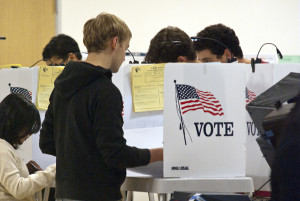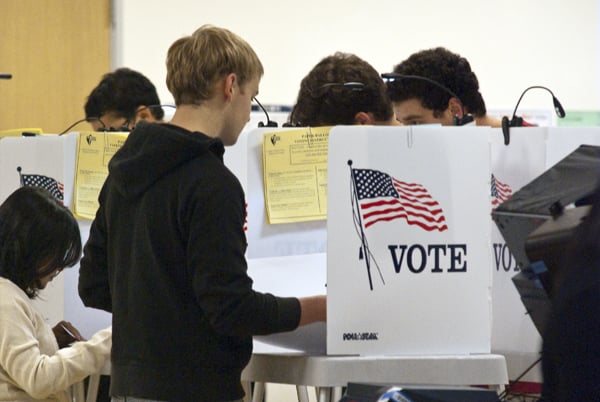
This year, courses like POLISCI 51K: Election 2012; COMM 104W: Reporting, Writing, and Understanding the News; and COMM 162: Campaigns, Voting, Media, and Elections are aimed towards covering the November 2012 election with students from every political persuasion.
Election 2012, a new 1-unit class, will be taught and moderated by associate professor of political science Rob Reich, Comparative Studies in Race and Ethnicity (CSRE) lecturer Jim Steyer and history professor David Kennedy. The trio will explore major election topics such as foreign policy, the economy, the Supreme Court and campaign strategy.
“This is a very important election,” said Steyer, founder and CEO of Common Sense Media. “Stanford is just the heart of leadership on a lot of these issues, both from faculty and some of the alums. I think [the class] is a great way to tie some of the things that students care about in the Stanford community to a larger cause.”
The course will feature high-profile speakers, including Stanford President John Hennessy, economics professor John Taylor and California Lieutenant Governor Gavin Newsom.
Anne Evered ‘15, a first-time voter, is excited about the lineup of distinguished speakers.
“I really wanted to learn about the major election and I feel like [POLISCI 51K] is a good mode to do that because it’s got great professors,” Evered said.
Reich hopes that the course will appeal to students through an experimental aspect: combining Stanford students enrolled for credit with community members enrolled via Stanford’s Continuing Studies program. A total of 600 people are registered for the course.
“It raises the possibility of engaging students in conversations about the election, and about politics in general, with people from the surrounding community and from a great diversity of ages,” Reich wrote in an email to The Daily.
Through COMM 162: Campaigns, Voting, Media, and Elections class, communications professor Shanto Iyengar and his students will examine media politics and how the role of the press is changing with regard to election campaigns. The class has been offered at Stanford for a decade.
“We will use the 2012 campaign as an opportunity to test propositions about campaign strategy and the behavior of journalists, candidates and voters,” Iyengar said in an email to The Daily.
Similarly, COMM 104W: Reporting, Writing, and Understanding the News, taught by McClatchy Visiting Lecturer Janine Zacharia, will explore the election through the lens of the media—yet with more hands-on reporting than journalism theory.
COMM 104W undergraduate students will collaborate with students from the Graduate Program in Journalism for local and national election coverage.
“Part of what I’m trying to do with the course is expose Stanford students to issues that they may not choose to expose themselves to,” Zacharia said. “I get a lot of joy out of seeing students reading about the news, thinking about the news, thinking about foreign affairs and politics.”
On Nov. 6, COMM 104W undergraduates and journalism graduates alike will work in groups to cover different aspects of the election in an all-night newsroom experience.
Learning how to ask questions, Zacharia stressed, is one of the key components of her class. She added that she intends to familiarize students with political issues in addition to teaching reporting basics.
“I would love to see Stanford students be a little more engaged with the news,” Zacharia said. “I understand that not everyone picks up a physical newspaper anymore but everybody is on their devices…What I gather from my class is that most people are getting stuff through Facebook but it’s not enough.”
Zacharia believes that with the upcoming election, students will get more engaged. Along with COMM 162 and POLISCI 51K, COMM 104W strives to inspire not only greater political awareness among students but also greater political involvement and participation.
“Stanford is going produce the nation’s future leaders, and I think it’s especially important that students be aware and engaged with political issues, foreign policy issues and the rest,” Zacharia said.
